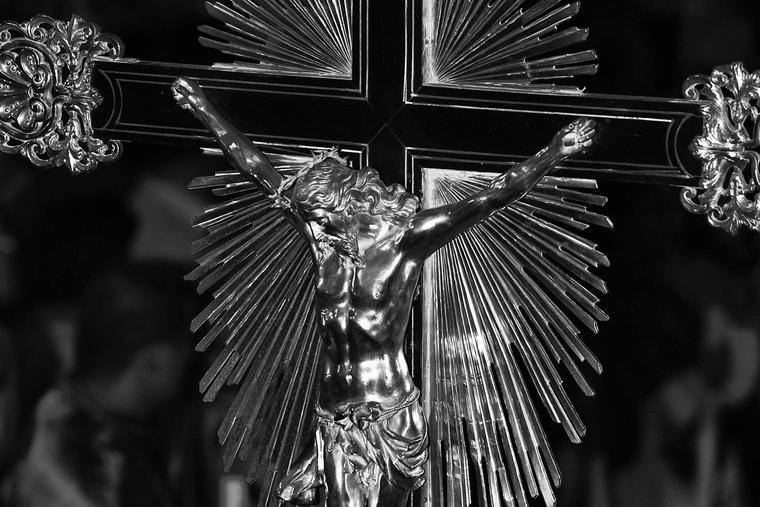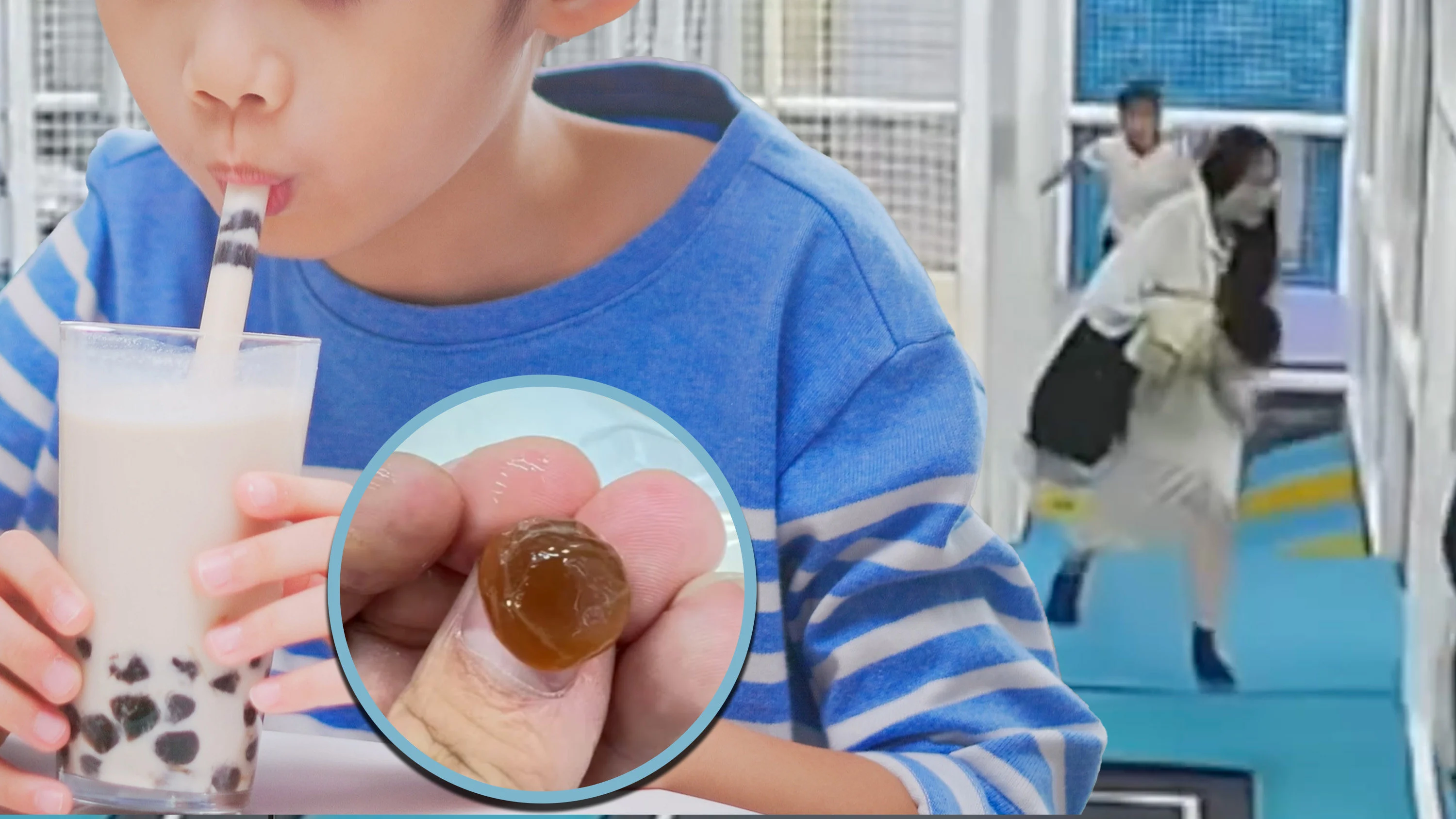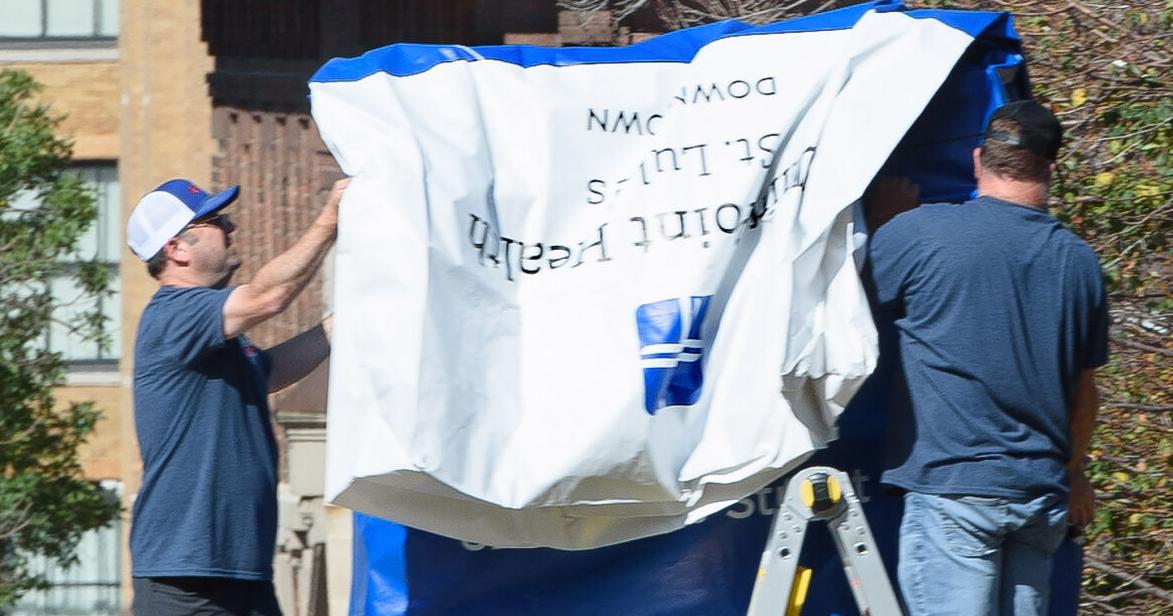Copyright ncregister

Many of the blessings we receive in this life often go unnoticed. After I was born, little did I realize that the devoted older couple pushing my pram — in which I was safely ensconced as a toothless, bald baby — would have such an impact on my family’s life. Mr. and Mrs. Matoga were hard-working farmers who had been employed by a family of Polish aristocrats in eastern Poland, a region the Russians had acquired during the partitions of the 18th century. Tragedy struck when the Russians confiscated the manor and its lands, forcing the Polish aristocrats into exile. As a parting gift for their loyalty and service, the lady of the manor gave the Matogas a pectoral reliquary crucifix that had once belonged to a Catholic bishop. Like the aristocrats, Mr. and Mrs. Matoga faced a major decision: Stay in Russian-occupied Poland or join the exodus of poor refugees heading for Germany to book steerage passage to the “Promised Land,” as they called the United States. They had frugally saved their earnings working at the manor. These funds, along with additional money provided by the family for whom they worked, enabled the Matogas to sail from Germany to the United States. Years later, they told my parents that the reliquary crucifix had given them enormous comfort during the long and difficult journey across the Atlantic. They were devout Catholics who held the silver, ebonized crucifix in their hands as they prayed. The Matogas eventually found their way to the Polish-American enclave in West Lynn, Massachusetts, where I lived with my family during the very early years of my childhood. The biggest and most difficult obstacle that Mr. Matoga faced was a severe speech impediment he had since birth. It was so pronounced that he could only manage to speak a few intelligible words which, with the help of signing, enabled him to be only partially understood. Despite his disability, he got a job at a local tannery, while his wife worked as a domestic. A sympathetic family who leased an apartment from my family rented a bedroom to them. No sooner had the new refugees settled into their adopted country than a horrible tragedy occurred: Mr. Matoga accidentally caught one of his hands in a machine at the factory, mutilating most of his fingers. Learning about the couple’s difficulties, my parents offered to help. First, they guided the couple through the process of becoming American citizens — a task that required my parents to act as interpreters, especially for Mr. Matoga. Meanwhile, my mother, with the help of an attorney, worked tirelessly to garner some compensation from the tannery for Mr. Matoga’s injury, which severely limited the type of work he was able to do. She succeeded in securing a modest sum for the couple. My father understood that Mr. Matoga — a gentle, sensitive man who suffered from depression after the accident — desperately needed regular employment to restore his self-confidence and dignity. Without hesitation, my father asked Mr. Matoga to be his assistant at the White Eagle Café, the upscale tavern my family owned. Mr. Matoga’s emotional health lifted dramatically when he learned that his major responsibility would be recording purchases and deliveries of various items needed to operate the tavern. Mr. and Mrs. Matoga never forgot what my parents had done for them. Their gratitude knew no limits. As a child, I remember how, after Sunday Mass, the Matogas would wait patiently for my parents to exit in order to greet them. What struck me was that their greeting was always the same. Mr. Matoga would remove his hat and bow ceremoniously to my mother and father. Mrs. Matoga would curtsy and kiss my mother’s hand. “Please, Mr. and Mrs. Matoga, you don’t have to do that,” my father repeatedly told them. “A simple hug would be fine,” he said with his trademark smile. “No! No!” Mrs. Matoga replied. “You helped us more than anyone. We will never forget your many kindnesses!” And so, the bows, curtsies and kissing of hands continued. Several years later, after World War II ended, my mother received a telephone call from Mrs. Matoga. She and her husband wanted to see my parents. By that time, my family had moved from West Lynn to a home near the Atlantic Ocean. There was much speculation that day among our large family about the purpose of the visit. Everyone agreed that it must be very important because the couple would have to take a long bus ride from West Lynn and then walk several blocks to where we lived. I was returning from one of my beachcombing outings, where I often found debris from naval and cargo ships sunk during the war, when I spotted Mr. and Mrs. Matoga walking briskly, arm in arm, down the hill toward our home. I greeted them at the door and escorted them inside. Our guests sat in the living room and told my parents that they had saved enough money to buy a cottage and a small plot of land to farm — their lifelong dream. Their new home would be in a nearby town. Mrs. Matoga repeated what she had said many times earlier: “Words will never be enough to express our gratitude to you for bringing us to this point in our lives.” That was the cue to her husband, who reached into his pocket and took out the silver reliquary crucifix, their most treasured possession. As tears streamed down his face, Mr. Matoga leaned over and gave it to my father. “It’s yours,” he managed to say with difficulty. “I know you to be a religious man and woman. I know it will be safe in your care.” My father carefully held the religious treasure. His head bowed. His hands shook. He, too, began to weep. My mother, overwhelmed by what had transpired, said: “It is a treasure. It was given to you many decades ago. You must keep it.” “No! No! No!” Mrs. Matoga insisted. Then, this tiny lady stood up and repeated the beautiful verse from Matthew 25:40: “Truly I tell you, just as you did it to one of the least of these who are members of my family, you did it for me.” The Matogas tearfully departed. We never saw them again. The beautiful crucifix became the centerpiece of our home, occupying a special place in my parents’ bedroom, where they always said their evening prayers. After my parents died, the crucifix found its new home with my wife and me. We often hold it when we pray and reflect on its centuries of history. Of course, the gentle kind Matogas are always in our thoughts and prayers. The greatest and most rewarding dramas of life are unknown to most of the world, because they occur to ordinary people who become extraordinary in their journey.



